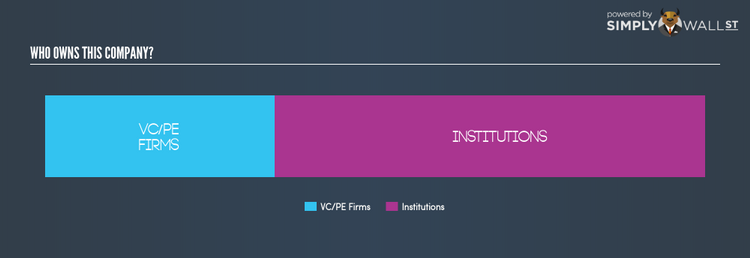Who Are The Largest Shareholders In Gloo Networks Plc (LON:GLOO)?

In this article, I’m going to take a look at Gloo Networks Plc’s (AIM:GLOO) latest ownership structure, a non-fundamental factor which is important, but remains a less discussed subject among investors. A company’s ownership structure is often linked to its share performance in both the long- and short-term. Since the effect of an active institutional investor with a similar ownership as a passive pension-fund can be vastly different on a company’s corporate governance and accountability of shareholders, investors should take a closer look at GLOO’s shareholder registry.
See our latest analysis for Gloo Networks
Institutional Ownership
With an institutional ownership of 65.28%, GLOO can face volatile stock price movements if institutions execute block trades on the open market, more so, when there are relatively small amounts of shares available on the market to trade However, as not all institutions are alike, such high volatility events, especially in the short-term, have been more frequently linked to active market participants like hedge funds. For GLOO shareholders, the potential of this type of share price volatility shouldn’t be as concerning as hedge fund ownership is is not significant,indicating few chances of such sudden price moves. While that hardly seems concerning, I will explore further into GLOO’s ownership type to find out how it can affect the company’s investment profile.
Private Equity Ownership
With an ownership of 34.90%, private equity firms are a major stakeholder in GLOO and are in a position to play an important role in shaping up corporate strategy with a focus on value creation. This is a positive sign for potential investors as these firms play an important role in aligning company policy with shareholder returns.
Next Steps:
GLOO’s considerably high level of institutional ownership calls for further analysis into its margin of safety. This will allow investors to reduce the impact of non-fundamental factors, such as volatile block trading impact on their portfolio value. However, ownership structure should not be the only determining factor when you’re building an investment thesis for GLOO. Rather, you should be looking at fundamental drivers such as the intrinsic valuation, which is a key driver of Gloo Networks’s share price. I urge you to complete your research by taking a look at the following:
Financial Health: Is GLOO’s operations financially sustainable? Balance sheets can be hard to analyze, which is why we’ve done it for you. Check out our financial health checks here.
Other High-Performing Stocks: Are there other stocks that provide better prospects with proven track records? Explore our free list of these great stocks here.
NB: Figures in this article are calculated using data from the last twelve months, which refer to the 12-month period ending on the last date of the month the financial statement is dated. This may not be consistent with full year annual report figures.
To help readers see pass the short term volatility of the financial market, we aim to bring you a long-term focused research analysis purely driven by fundamental data. Note that our analysis does not factor in the latest price sensitive company announcements.
The author is an independent contributor and at the time of publication had no position in the stocks mentioned.

 Yahoo Finance
Yahoo Finance 
